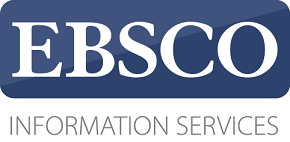Profil Psychological Well Being Siswa MTs di Kabupaten Malang
Abstract
Abstract: MTs students as teenagers are faced with experiences and challenges as they grow. This study aims to measure the psychological well being of 153 respondents through a survey research design. The instrument used is a psychological well being scale and analyzed through descriptive statistics and graphs. The results showed that the psychological well being condition was in the medium category and tended to be high. Adolescents who have high psychological well being have self-acceptance, Positive relations with others, Autonomy, Environmental Mastery, Environmental Mastery and personal growth. Increasing psychological well being is needed by teenagers. in overcoming challenges in his life, problem solving abilities and optimizing his potential.
Abstract: Siswa MTs sebagai remaja dihadapkan pada pengalaman dan tantangan ketika mereka tumbuh. Penelitian ini bertujuan untuk mengukur kondisi psychological well being dari 153 responden melalui desain penelitian survei. Instrumen yang digunakan adalah skala psychological well being dan dianalisis melalui statistik deskriptif dan grafik. Hasil penelitian menunjukkan kondisi psychological well being berada pada kategori sedang dan cenderung tinggi. Remaja yang memiliki psychological well being yang tinggi memiliki penerimaan pada diri sendiri, mampu membina hubungan positif dengan orang lain, memiliki kemandirian, mampu menguasai lingkungan, memiliki tujuan dalam hidup dan pertumbunhan pribadi. Peningkatan psychological well being diperlukan remaja. dalam mengatatsi tantangan dalam hidupnya,kemampuan problem solving dan optimalisasi potensi yang dimilikinya.Keywords
Full Text:
PDFReferences
Alwisol. (2019). Psikologi Kepribadian . UMM Press.
Amichai-Hamburger, Y. (2009). Technology and psychological well-being. Technology and Psychological Well-being, 1–287. https://doi.org/10.1017/CBO9780511635373
Creswell, J. W. & J. D. C. (2018). Qualitative, Quantitative, and Mixed Methods Approaches (Fifth Edition). Sage Publication.
Eva, N., Shanti, P., & Nur Hidayah. Hasan. (2020). Pengaruh dukungan sosial terhadap kesejahteraan psikologis mahasiswa dengan religiusitas sebagai moderatoro. Jurnal Kajian Bimbingan. https://scholar.google.com/scholar?hl=id&as_sdt=0%2C5&q=Nur+Eva1*%2C+Pravissi+Shanti1%2C+Nur+Hidayah2%2C+Moh.+Bisri1+&btnG=
Hurlock, E. (1992). Psikologi Perkembangan Suatu Pendekatan Sepanjang Rentang Kehidupan. Erlangga.
Ingrid E Wells. (2010). Psychological Well-Being (Ingrid E. Wells (ed.)). Nova Science Publishers.
John W. Santrock. (2016). Adolescence (Sixteenth). McGraw-Hill Education.
Keyes, C. L. M., Shmotkin, D., & Ryff, C. D. (2002). Optimizing well-being: The empirical encounter of two traditions. Journal of Personality and Social Psychology, 82(6), 1007–1022. https://doi.org/10.1037//0022-3514.82.6.1007
Laurence Steinberg. (2017). Adolescence. McGraw-Hill Education.
Lucas, C. V., & Soares, L. (2013). Bibliotherapy: A tool to promote children’s psychological well-being. Journal of Poetry Therapy, 26(3), 137–147. https://doi.org/10.1080/08893675.2013.823310
Nastasi, B. K., & Borja, A. P. (2015). Introduction to the promoting psychological well-being globally project. In International Handbook of Psychological Well-Being in Children and Adolescents: Bridging the Gaps Between Theory, Research, and Practice (hal. 1–12). Springer International Publishing. https://doi.org/10.1007/978-1-4939-2833-0_1
Ramadhani, T., Djunaedi, D., & S., A. S. (2016). Kesejahteraan Psikologis (Psychological Well-Being) Siswa Yang Orangtuanya Bercerai (Studi Deskriptif yang Dilakukan pada Siswa di SMK Negeri 26 Pembangunan Jakarta). INSIGHT: Jurnal Bimbingan Konseling. https://doi.org/10.21009/INSIGHT.051.16
Soe Roffey. (2012). Positive RelationshipPositive Relationship (Soe Roffey (ed.)). Springer.
Whiston, S. C. (2017). Principles and Applications of Assessment in Counseling, Fifth Edition. Cengage Learning.
DOI: http://dx.doi.org/10.17977/um011v10i22023p94-99
Copyright (c) 2023 Jurnal Pendidikan Humaniora

This work is licensed under a Creative Commons Attribution-ShareAlike 4.0 International License.
Jurnal Pendidikan Humaniora Graduate School, Universitas Negeri Malang JPH is licensed under Creative Commons Attribution-ShareAlike 4.0 International License |









